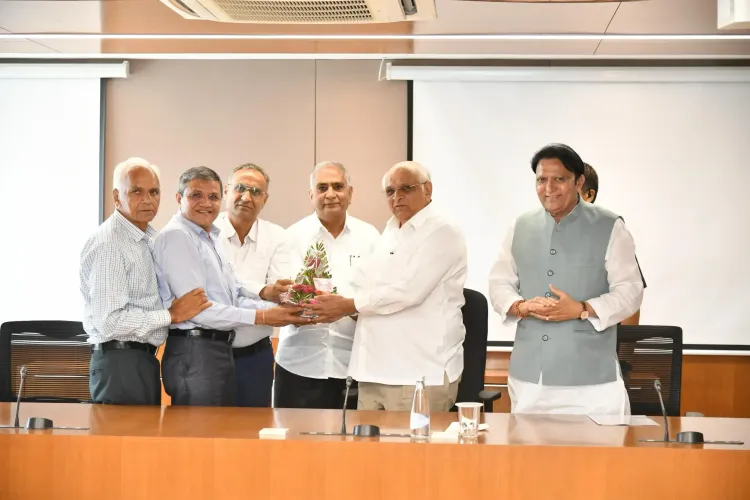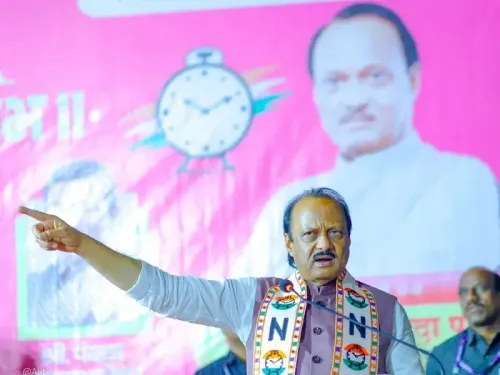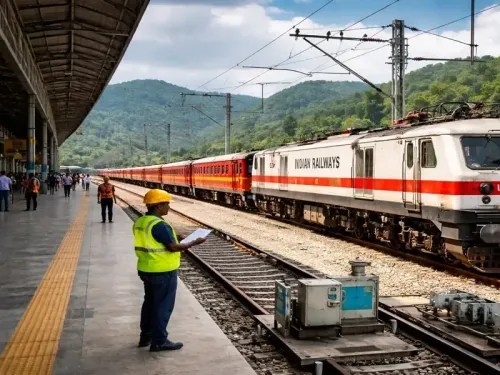How Are Businessmen in Gujarat Responding to CM Patel on GST Reforms?

Synopsis
Key Takeaways
- NextGen GST Reforms offer a streamlined tax structure with fewer rates.
- Compliance measures have been simplified for small businesses.
- A new AI system will combat fraud effectively.
- GST refunds for exporters will be processed rapidly.
- Overall, these reforms are expected to drive economic growth in Gujarat.
Gandhinagar, Sep 8 (NationPress) Representatives from diverse industry groups in Gujarat convened with Chief Minister Bhupendra Patel to convey their appreciation to Prime Minister Narendra Modi and the central government for the newly introduced “NextGen GST Reforms.”
The gathering, which included Industries Minister Balvantsinh Rajput, saw business leaders embracing the updated framework as a “motivating and favorable initiative” for enhancing business prospects.
The industry associations expressed that the reforms would streamline daily business functions, facilitate logistics, and cultivate a more favorable business atmosphere. They also expressed optimism that the revamped GST framework would not only expedite industrial progress in Gujarat but also stimulate economic advancement nationwide.
During the financial year 2024-25, Gujarat achieved a GST collection of roughly Rs 1,36,748 crore, marking a substantial increase of Rs 11,579 crore compared to the previous year, solidifying its status as the third-largest GST contributor among Indian states and accounting for 8.2 percent of the nation’s domestic GST revenue.
This remarkable growth was bolstered by a 13.6 percent rise in SGST and IGST revenues, surpassing the national growth average of 10.31 percent.
Further monthly data illustrates this ascending trend: April 2025 alone generated Rs 14,970 crore, reflecting a 13 percent year-on-year increase, while July 2025’s GST collections for the state reached Rs 11,358 crore, up 3 percent from July 2024.
The newly unveiled NextGen GST Reforms by the central government represent the most significant transformation of the tax structure since its inception in 2017. The reforms simplify tax brackets by limiting them to two primary rates — 5 percent and 18 percent — with a special 40 percent slab allocated for luxury items such as high-end vehicles, tobacco, and cigarettes.
GST on dining has been streamlined to a uniform 5 percent, replacing the previous system of varying rates. Compliance has been simplified through a single, consolidated monthly return, reduced filing frequency for smaller enterprises, and an automated input tax credit to minimize delays.
The reforms also introduce an AI-powered fraud detection mechanism to combat fake invoices and tax evasion, while a nationwide e-invoicing framework will enhance transaction transparency.
To bolster MSMEs, thresholds for GST registration have been elevated, and a composition scheme has been expanded to encompass more small traders.
Furthermore, GST refunds for exporters are now processed within seven days, which enhances liquidity. Industry representatives have praised these reforms as business-friendly, emphasizing that they will alleviate compliance burdens, enhance logistics efficiency, and stimulate growth, particularly within the manufacturing and services sectors throughout India.










